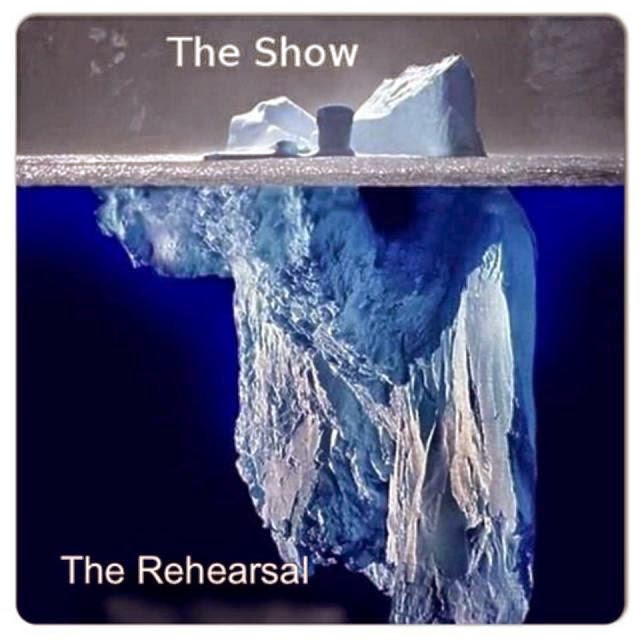As 2014 draws to a close the Britten Sinfonia management team look back on some of their highlights of the year;
Nikola White (Artistic Planning Director)
"There are currently no Eurostar trains leaving St Pancras today". So, one of the highlights of my Britten Sinfonia year threatens to be spoilt by unexpected but somehow horribly predictable travel disruption on the Continent.....fortunately several hours later I'm listening to Bach's
St John Passion in the illustrious Amsterdam Concertgebouw and can detect no signs of tiredness from our incredible musicians, just complete, utter focus and dedication to this miraculous work (the
St Matthew just edges it for my Desert Island, but not by much).
When we first broached the idea of performing the
St John without a conductor, it was in somewhat hushed, tentative tones; to pull this off would be quite something. But under the imaginative direction of our Leader, Jacqueline Shave, along with Eamonn Dougan (our Voices Director), choir, soloists and orchestra became one, and it was incredibly moving to see their collective reverence to the piece expressed so clearly; Nick Mulroy's evangelising was worth a ticket in itself - sure, we all know the story but in his hands (or, more accurately, voice) it seemed I was hearing the narrative for the very first time. We had the chance to perform the work on five consecutive nights, including a performance at the Barbican on Good Friday, which was an infinitely more rewarding Easter experience than my usual: deciding which chocolate egg to eat first.....
Read the reviews from our
St John Passion tour
here
Elizabeth Hunt (Development Assistant)
My favourite performance from 2014 has to be Thomas Ades'
Polaris at Sadler's Wells. The trouble is, I found it so amazing that a few words in a blog post really won't do it justice... plus, I feel the pressure of writing a good piece about it because I know so many of the team here were enthralled by it and wanted to mention it as a favourite (sorry, Will!).
As a dancer, I had been looking forward to the gig for ages, and it did not disappoint. I was blown away by the whole evening and had a brilliant time as a member of the audience on the night of the world premiere and as part of the Patron's Night receptions, held for donors at Sadler's Wells and some of our generous Friends and Chair Partners. I really did see the music and hear the dance that night; the dancers and the choreography brought the music to life, for me anyway. Not being an aficionado of contemporary music (I freely admit), I'm not sure the music would have spoken to me in the same way as it did with the accompanying movement on stage. I was totally immersed in the spectacle of
Polaris, the final piece of the evening, with c.60 dancers on stage moving as one, all in black; and being surrounded by fantastic music performed by our players around the auditorium was just incredible. I enjoyed the whole evening, but
Polaris... I'm not ashamed to admit I welled up a little from being so wowed and in awe. And my hands hurt from clapping. Got to love a good world premiere.
But, aside from Sadler's Wells, I'm also going to mention the
Fields of Sorrow concert at Milton Court as part of our Birtwistle celebrations in May. I really enjoyed Vaughan Williams'
Fantasia on a Theme of Thomas Tallis and
Flos Campi and following a brilliant evening in the company of lovely colleagues from the office and our musicians, I felt very proud to be fundraising for concerts like that; for amazing musicians and music which need to be seen and heard.
See some photos and read reviews of Thomas Ades: See the music, Hear the Dance
here
Emily Moss (Creative Learning Graduate Trainee)
A particular highlight for the Creative Learning team was Britten Sinfonia Academy's public appearance in the pre-concert event for our celebratory
John Woolrich at 60 concerts in London and Cambridge. A new year of talented young musicians performed two of Woolrich's pieces, one orchestral and one chamber piece. After an intensive weekend of rehearsals the academy members succeeded in presenting a polished and energetic performance and we are immensely proud of their hard work and enthusiasm. Having only recently joined Britten Sinfonia in September 2014 I have really enjoyed my concert experiences so far, ranging from Britten’s
War Requiem at Ely Cathedral to the intimate wind quintet performance at the first At Lunch concert of the season, and I look forward to experiencing many more Britten Sinfonia concerts.
Find out more about Britten Sinfonia Academy
here.
Annabel Leakey (Orchestra Manager)
It's impossible to choose a single project from 2014 as my favourite, so hopefully I can get away with picking two.... In which case, my first choice would be our mini tour of Bach's
St John Passion, performed in the run up to and over Easter weekend. Even for a non-Bach-lover (an admission that's probably going to come back and haunt me in the future) the chance to spend a week absorbing the work in the distinct way you do when you follow a project through from initial rehearsal to final performance was wonderful. One of the most enjoyable aspects of my job is being able to watch how a project evolves. With a masterpiece such as the
St John Passion, which members of the orchestra have played many times before with different conductors, directors and soloists, this means seeing how the ensemble, with its collective experience of assorted previous interpretations, gel together to create a fresh perspective on a work they already know well. My first visit to Amsterdam’s Concertgebouw (complete with significantly delayed Eurostar), a midnight supermarket trip for vital Easter eggs, and a 5am flight also ensured this was a project I won’t forget in a hurry…
My joint-favourite Britten Sinfonia project of 2014 has to be our tour to India. Too many experiences to mention within only a few lines, but memorable moments (for both delight and horror!) include meeting and getting to know the gracious Ali-Khan family, finding myself momentarily lost in Old Delhi on Indian Independence day – one of the busiest of the year, the realisation that anything cooked in South India is significantly hotter than anything else I’ve ever tasted, watching the amalgamation of Indian and Western musical styles come to life in Amjad Ali Khan’s
Sarod Concerto, discovering that Tablas come in a variety of keys (it seems an obvious oversight, with hindsight), watching a huge bunch of enthusiastic and energetic children at Bangalore’s Samarthanam Centre join in with songs taught to them by Britten Sinfonia musicians, learning about the intricacies of the Indian visa process in a slightly-too-short space of time, and, finally, truly understanding the saying that Travel is only glamorous in retrospect.
Read Annabel’s tour blog –
Part I ,
Part II,
Part III,
Part IV
Will Harriss (Development Director)
One of my favourite commissions of the year was right at the start of 2014 - a pair of works by the brilliant baritone (and composer!) Roderick Williams. That he both wrote the works and sang in their premieres was enthralling. Stepping back three hundred years or so, I was also mesmerised by our Eastertide performances of Bach's
St John Passion. It was so complete a performance - excellent soloists, complemented by our musicians looking as if they were playing for their lives. Finally, our collaboration with Sadler's Wells and Thomas Adès was an absolute highlight of not only this year but, for me, the last few years. Exhilarating doesn't even begin to describe it.
Listen to Roderick Williams discuss his new work in a pre-concert talk
podcast
Karys Orman (Marketing Assistant)
My highlight of the year would obviously have to be joining the Britten Sinfonia team in July! I'm very excited to be here and looking forward to what 2015 will bring... A 2014 concert highlight for me was hearing Britten Sinfonia in the Turner Sims 40th anniversary Gala concert, where it was announced that the orchestra will begin a three-year residency there starting next season. Being originally from Southampton myself, it was a real treat to hear the orchestra on home turf, the audience was clearly enjoying the performance a huge amount and this energy really rubbed off on the musicians, creating a brilliant atmosphere and some brilliant music-making!
Check out the Turner Sims Concert Hall website
here
David Butcher (Chief Executive)
One of the benefits of Britten Sinfonia’s new partnership with the Barbican, is that we can propose ambitious artistic ideas, and collaborate to make them happen. The semi-staged production of Harrison Birtwistle’s seminal opera last May,
Yan Tan Tethera, is one such example. Written in 1986 this was its first airing since the premiere and part of Harry’s 80th celebrations. It’s a haunting and unsettling piece and akin to all great art, works on many levels.
Ostensibly a folk tale about a good and bad shepherd, it explores political and social themes, raising issues of prejudice and exclusion, as relevant now as they were in 1986. Intriguingly described by the composer as a “mechanical pastoral”, it’s constructed with mathematical precision, musically and dramatically. The two shepherds (brilliantly sung by Roderick Williams and Omar Ebrahim) emerge automaton-like as figures on an elaborate clock. They are underpinned by Birtwistle’s glistening, mysterious score, with its constantly vacillating "music of the hill" themes which, alongside Tony Harrison’s magically earthbound libretto, brings the story to life.
Yan Tan Tethera should be placed alongside the ground-breaking
Punch and Judy, as a key work prior to his later larger scale achievements such as
Gawain or
Minotaur. Moreover, in
Yan Tan Tethera you experience the detailed musical textures and lyricism of Birtwistle’s instrumental craft, (sometimes obscured within the blocks of sound in his larger-scale works) and we can experience the visceral sensations of the wind sharking around the sarsen stones unveiling the mysteries which lie beneath.
I hope this opera, alongside other works we performed last May (most notably
Melancholia 1), demonstrates Birtwistle as a profoundly English composer, as much as Vaughan Williams or Elgar. It’s just that Birtwistle’s vision is not one of green bucolic pastoral, but, as Andrew Clements so vividly described,
“of something bloodied and cruel, rooted in pagan Albion.”
Read the reviews of Yan Tan Tethera
here
Claire Bowdler (Marketing Director)
When I suggested this blog post to everyone and asked for their highlights of 2014 I hadn’t thought what I would pick myself – I’ve realised it’s actually quite hard to pick just one highlight – working with such a talented bunch of musicians and great programming team means that each individual project has something special about it. However if I had to pick one (as I expected everyone else too) it would have to be our project with violinist Patricia Kopatchinskaja (or the much easily pronounceable Pat Kop). I’d never seen Pat Kop perform before but had heard great things from colleagues and musicians. In marketing terms it was a great project to work on as Patricia is a fascinating character and amazing performer – we had a wealth of materials to use and worked in partnership with Wash Media to create a short film trailer which has been our most popular to date.
Pat Kop’s performances were energetic, fierce, impulsive, expressive and more. A highlight of the programme was Bartok’s Romanian Dances of which I had never heard such a frenzied, raw and exhilarating performance. I look forward to the next time we collaborate with this distinctive, virtuosic musician again.
Watch the trailer for our Patricia Kopatchinskaja tour
here.
To find out what we have planned for 2015 take a look at the
concerts section of the website.



%2BNatalie%2BWatts.jpg)

%2BHarry%2BRankin.jpg)







